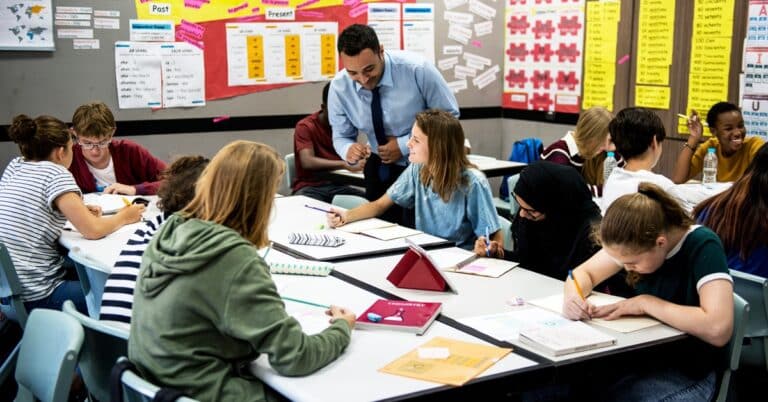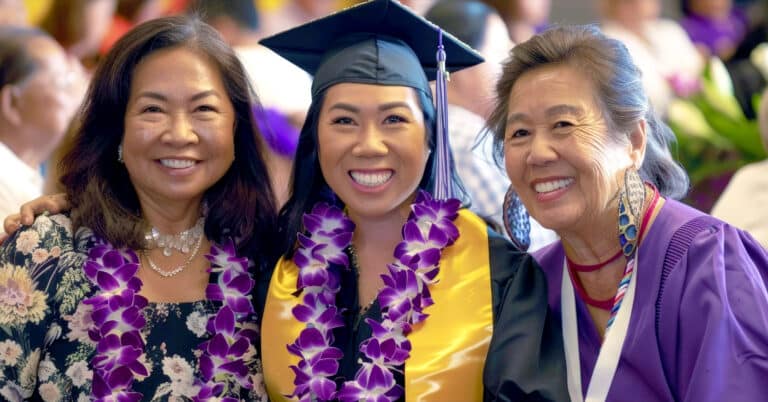It’s the first day back from holiday break in Lorena Villa’s kindergarten classroom, and she’s working with her learners to refresh their understanding of Mountainview Elementary’s grading scale. Pointing to brightly colored numbers on the wall, she engages in a call and response.
“I need a lot more practice – that’s if you’re at a number one,” Villa says, continuing with pauses to let the children repeat after her. “Then if you’re on the number two, you’re going to say: I am almost there. I am starting to understand this skill. But I still need more practice.”
When Villa gets to a three – the grading scale in kindergarten stops at a three – she raises her fist in the air and asks her learners what they will say. Their response is immediate, gleeful.
“I did it!”
Mountainview Elementary is one of three elementary schools in the Santa Cruz Valley Unified School District #35 (SCVU35) in Rio Rico, Arizona. Like the rest of the district, they use a standards-based grading scale.
Third grader Juan Espiricueta Jr. can clearly articulate what the proficiency scales mean in his own words.
“Level one, I am beginning to learn. It means you’re starting to kinda get it, but you need more help. A two is: I can show evidence and can remember details. It’s where you already know it; you just need to remember a few things still. Level three is: you know it, you’re good at it, you’re right where you need to be. Four is advanced. I can demonstrate my learning in many ways. I could teach something or do something.”
Read more about how standards-based grading is helping empower educators and learners in SCVU35.
Villa’s learners may be young, but the move to standards-based grading felt natural as a kindergarten educator.
“For standards in kindergarten, it has always been emergent, meeting and proficient – we just talk more about what the numbers mean,” said Villa. Whether they’ve been in preschool or not, what they experience in Villa’s classroom is all they know. It sets the foundation for grading throughout their educational experience: a reflection of their learning, not just a letter or a number.
For Villa, standards-based grading encourages her learners to “reach higher,” and provides her the necessary flexibility to facilitate learning at different levels. Following their refresher on the grading scale, Villa asked her students to think about where they were with a specific math standard and self-select from activities and stations throughout the classroom. Whether they were a one, two or three, there was something for them to work on alone, with a partner or in a group, and Villa was there to support and facilitate learning as needed. What followed was a focused, busy time, accompanied by the happy hum of children working.
Villa explained that routine and repetition from the first day of school helped her learners know what to expect and how to navigate the space.
“It’s a lot of repetition. ‘What do we do first?’ Let’s practice. And then what? If you feel you’ve reached your goal, what can you do? ‘I can choose another one.’ They can work with another student. They can work in groups,” Villa explained. “I make them responsible for their learning – what rules can we set if we want to be working and using our flexible seating? What rules can we establish so that everybody’s working and having fun and learning at the same time?”
What’s powerful about this approach to grading, as evidenced by the learners in Villa’s classroom, is that students as young as five and six years old don’t just know what their grade means – they know what it reflects about their understanding and how they can grow.
For Villa, what they want for graduates starts with how they own their learning in kindergarten.
“It’s incredible to see a five or six-year-old say, I reached my goal! And I always ask, why do you think that? And they’ll tell me, ‘Because I learned to put the numbers in order!’ Or, ‘Because I know how to do the sounds, I know my sight words!’ That gives me great pleasure. That’s what they know.”
This was written by former Senior Manager of Communications Jillian Kuhlmann.




